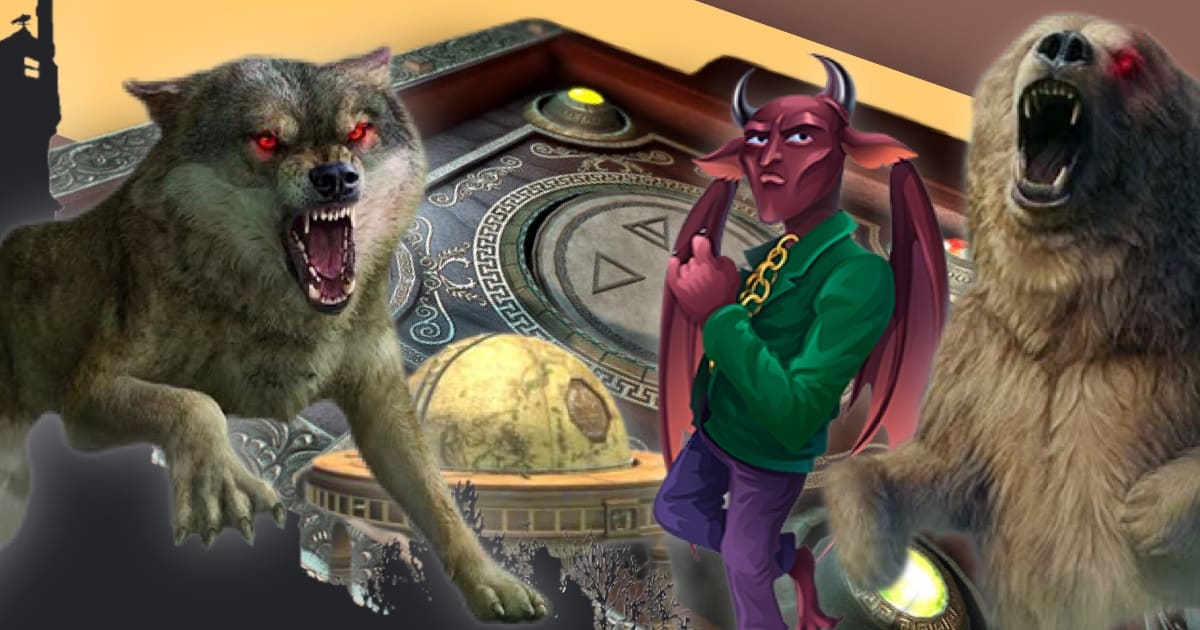Pearls of Atlantis Update – A Labor of Love
I have an update on Pearls of Atlantis, a mobile game published by Legacy, hopefully of interest to both fans and mobile game
Get the latest news from Legacy Games!


by Casey Fields
I’m a fan of hidden object games, but recently I became tired of them, or more accurately, my eyes became tired. Like perhaps some of you, I was curious about other game playing types and wanted to explore new genres. But there are a lot of different kinds of games out there – shooters, real time strategy, adventure, simulations, action, platformers. I wasn’t sure where to start.
So I thought it might be useful to first look at what we love about hidden object games, and then consider other genres that share something in common with them.
What is There to Love in Hidden Object Games?
So, what is there to love about hidden object games? Let’s start off with the core gameplay elements: searching environments for hidden objects.
Environmental interaction is core to the design of a hidden object game. Designers spend much of their time authoring unique and compelling spaces for the player to comb through in pursuit of various objects. Some hidden object games take this a step further, requiring environmental puzzle solving, oftentimes through finding and combining certain objects inside or outside the player’s inventory. Once these objects have been combined, they can be used elsewhere in the scene to obtain another item.
But there are other, more subjective features that excite hidden object fans. Some are drawn into the distinct graphical style of painted images or realistic photos. Others are drawn into the narrative, engaged by having an in-universe reason for tracking down these hidden objects.
From Hidden Objects to Adventures
Knowing what we know now about the core elements of a hidden object game, let’s dive into one of the many different game genres that might appeal to a fan of these games – adventure games.
Adventure games incorporate many of the most exciting elements of a hidden object game. Once again, let’s start with the gameplay. The most simple adventure games provide the player with a large world to explore and interact with, though this is not always the case.
Players familiar with the controls of hidden object games will be right at home in games like this, clicking around and exploring, searching for items, and solving puzzles to advance the narrative. This type of point and click adventure game is the standard for the genre and almost all other adventure games can be traced back to this basic formula.
Angelo and Deemon: One Hell of a Quest
This progression from hidden object to adventure can also be seen in their graphics and narratives. We’ll start with graphics. Many adventure games are created in a similar graphical style to hidden object games, be that a more painterly style in a game like Angelo and Deemon: One Hell of a Quest, or a more realistic photo-like style in a game like The Wild Case.
Where adventure games and hidden object games have their largest rift, at least in regards to the most basic version of each game, is in their narrative. While many hidden object games have an in-universe reason for finding said hidden objects, having one is not necessarily required for a complete experience. However, this type of narrative is essential to the experience of an adventure game. Adventure games, as their name implies, are about the characters within going on an adventure. This narrative can be revealed to the player in a myriad of different ways, through spoken dialogue and character interactions or through discovering notes and clues in an empty manor, to name just a few.
Some Adventure Games to Try Out
Now let’s talk about some specific adventure games you might want to try out. We’ll start with a game that’s the closest to the archetypical adventure game, a point and click adventure called Angelo and Deemon: One Hell of a Quest.
In Angelo and Deemon, a miscommunication results in Angelo being inadvertently brought into the afterlife by the Grim Reaper. Like adventure games of yore, players use point and click controls, and focus on traversing a variety of interesting and mysterious environments, finding hidden objects, and solving puzzles that advance the narrative to get Angelo home.
Where this game might differ from most hidden object games is its more dynamic narrative flow. Angelo can converse with various characters through dialogue trees, allowing the player to choose between different lines of dialogue to advance the plot. These dialogue trees often result in different outcomes subsequent playthroughs, providing a large amount of replayability.
A Focus on Gameplay: Puzzle Solving
The typical adventure game usually strikes an even balance between puzzle and narrative. But what if you’re more interested in puzzles than stories? What if you want to flex your brain a bit more? If you’re that kind of player, then we look to a particular subgenre of adventure games, known as escape the room games. If you’ve ever done an escape room challenge in real life, these games are quite similar. In this instance, you might be interested in The Room, a three dimensional escape room game available on mobile devices.
In The Room, you focus on a series of puzzle boxes, solving increasingly complex puzzles. The narrative is more simplistic, though not absent, revealed to the player through hidden notes.
A Focus on Narrative: Delving into Mystery
When the pendulum of narrative and puzzle swings in the opposite direction from puzzles, you get the walking simulator genre of adventure games. What Remains of Edith Finch, a first person, exploration based game is a prime example, where you explore the Finch house, guided by the expository narration of Edith Finch herself.
This particular game focuses more on its narrative, slowly revealing the story of a cursed family, as the player explores vignettes of the death of each of Edith’s relatives. As in many HOGs, the main draw of this walking simulator adventure game is the slowly unraveled mystery that you get to experience first-hand.
So Where Do We Go From Here?
Each of these games should hopefully provide a good starting point for digging into the wide world of adventure games. And if none of these particular games appeal to you, then there are many more to choose from. Ready for an adventure?
Subscribe To Our Newsletter!
Get 10% off when you subscribe to the Legacy Games newsletter!
Weekly Deal - 30% Off!
Lost Lands Vol. 2 - 3 Pack | $13.99 $9.79 | Sale ends 04/29
Blog
I have an update on Pearls of Atlantis, a mobile game published by Legacy, hopefully of interest to both fans and mobile game
Legacy stands behind all its games. For help installing your games, please visit our FAQ or contact us. If you are dissatisfied with your purchase, we will offer you a full refund within 30 days of purchase.
Get 10% off when you subscribe to the Legacy Games newsletter!
Legacy Games has been a leader in PC casual games for 25 years! Customers can purchase our value-packed game bundles at retail stores and digitally at LegacyGames.com.
We’ve personally selected only the best Hidden Object and Indie games for you to enjoy! Have fun!
Useful Links:
Copyright © 2024 Legacy Games | View our Privacy Policy and Terms of Use